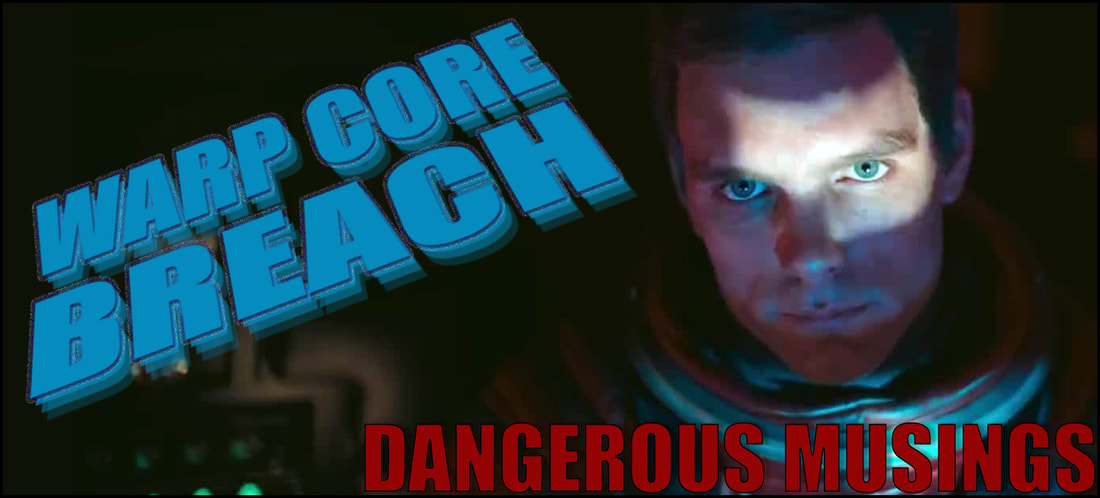A long time ago in a galaxy far, far away (snicker snicker) I attended a small private college in Anytown, USA. In one of my several classes talking about film, a professor (who shall be nameless) took the occasion one day to wax on eloquently about “mankind’s claim” that Stanley Kubrick’s 2001: A Space Odyssey was not only the greatest Science Fiction film ever made but very well was considered the best film ever made.
Now, at this juncture in my cognitive development, I was a firm supporter of Citizen Kane’s rightful claim to that title. Not one to keep silent, I spoke up, asking where it was written that 2001 was ever considered a greater accomplishment than Kane was … to which I got an earful. Pushing back as politely as I could, I argued that I’d never heard of anyone making such an assessment, and – while I didn’t doubt the instructor had read or perhaps thought such a ranking possible – I wanted to know which experts felt that way so that I could go out and read their analysis. Essentially what I was told was that 2001 was, clearly, the superior film because of its central message.
Get ready, folks.
I asked, “What is 2001’s central message?"
As you might guess, my professor laughed at me, and he did stop short of encouraging others to laugh. (FYI: seriously, no one did.) When he perhaps perceived he was a bit on an intellectual island at this point, he attempted to turn the class loose on me, instead asking them to tell me what they thought 2001’s central tenet was. Fate can be cruel; and, alas, only a few had even seen the picture, but someone ventured a soft statement something like, “I think it’s about man’s place in the universe.”
To which I asked: “Which is what? Go anywhere you want but don’t go to Europa?”
Again, my long-established standing on 2001: A Space Odyssey isn’t that it’s a bad film, as I’d be a fool to argue anything remotely close to that. But when thinking about a story one has to begin from a point of shared understanding, the single greatest example of which is comprehending what the story is saying about its subject matter. It shouldn’t just talk about an idea (or a series of ideas); it should definitively say something about it. On some level, I think, every film must be relatable in that way. Its message should be universal, otherwise its arguments appear like more time spent “in the weeds” than anything else.
This is where I’d argue that the Kubrick film heartily flirts with a wealth of great ideas – some big, some small – but never definitely hits the nail on anything particularly significant. It’s a mental exercise meant to make its audience think about man, evolution, space, perhaps our existence, and maybe even our place in the universe; and, yes, maybe on some superficial level it might preach we should all exercise a bit more caution in what we do … but I’d still argue that its true meaning as intended by both Kubrick and co-scripter Arthur C. Clarke might be elusive and perhaps best left that way. In the final estimation, it’s a film that can say practically anything you want it to say about its ideas, kinda/sorta leaving you – the audience – to cast the defining vote.
Any amount of reading will demonstrate that a great deal has been written about the film. In fact, stop right now and do a Google search under the topic of ‘What does the film 2001’s ending mean?’, and you’ll get a flurry of results, many of which might explore any number of pet theories extrapolating the significance behind each and every frame of film Kubrick shot for the ground-breaking feature. This is what I mean when I say that it can be about anything you want … and some would argue that’s the picture’s greatest strength. While I won’t proclaim it a weakness, I will suggest that it’s led to more confusion than it should.
2001 came at the height of the counterculture movement in the U.S. (I’m told this was a global phenomenon, but I still see it tied to America more than anywhere else.) This was a period in history when “the greatest brains among us” were telling us that the long-established social norms were no longer good enough, that society needed to be upended and a new world order founded on – ahem – peace, love, and drugs should be established. Well, how perfectly fitting that a film kinda/sorta loosely about overthrowing ‘the norms’ and ending with cinema’s longest drug trip sequence ever would be embraced by these revolutionary anarchists!
Supreme Caveat:
I said what I said; and, no, I’m not sorry. No, I won’t take it back. I don’t find 2001 accessible, and I see it more as an exercise for those who wish to undertake mental gymnastics than anything else. And you know what? There’s absolutely nothing wrong with that. I realize my opinion is controversial, but that’s why I’ve created a little something-something called ‘Warp Core Breach’ – it’s meant to blow things up, especially the status quo.
Keep in mind that just because I perhaps don’t find 2001 the best Science Fiction thing since sliced Soylent Green shouldn’t even imply for one nanosecond that I don’t believe you (or anyone) should see it. As I’ve tried to be perfectly clear, the bulk of my hang-ups with it is that the journey ultimately means nothing to me on a personally level; so my failure to connect is my business and mine alone. What I’m talking about here is that a film experience requiring crib notes is not my idea of entertainment: that’s education … and there’s a time and a place for that in life, too. I simply prefer it in the classroom.
-- EZ


 RSS Feed
RSS Feed